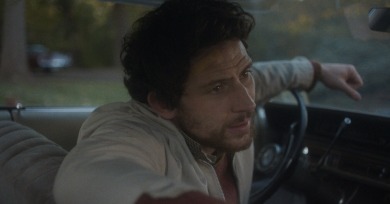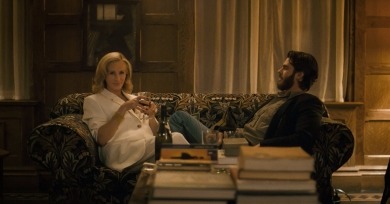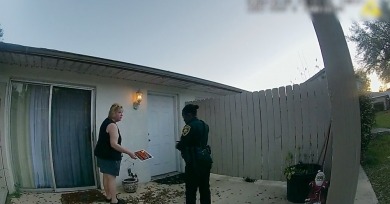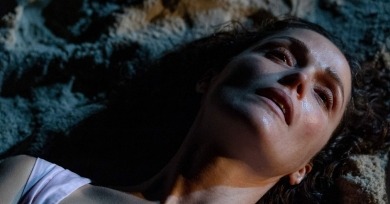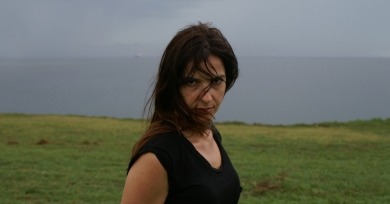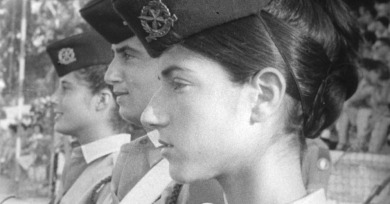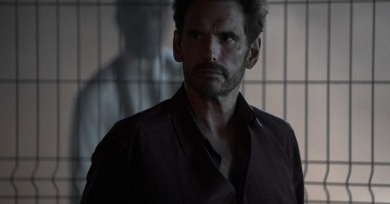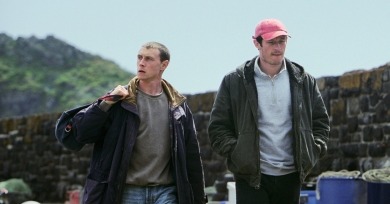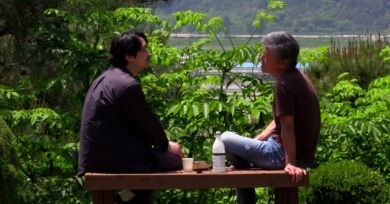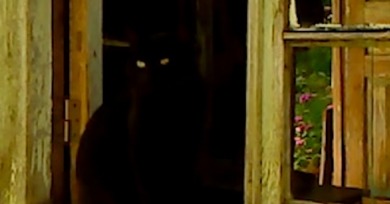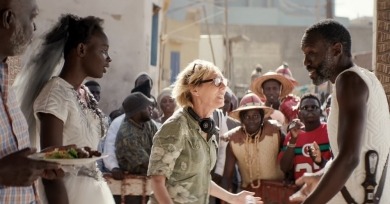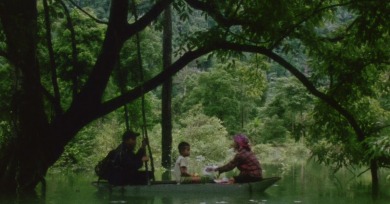Reviews
His obliviousness to anything beyond his chain link fence gestures to the political and cultural schism dividing much of America—between draft dodgers and patriots, rioters and the police, those fine with the status quo and those earnestly believing that things can change for the better.
It is by now a cliche to allege that the films of Luca Guadagnino offer more in the way of surface luxuries than intellectual stimulation, but the chasm is especially apparent in a film that at one point finds Roberts stiffly lecturing on the panopticon.
Eschewing the use of talking heads or a slate of statistics, director Geeta Gandbhir reconstructs the narrative largely from police bodycam footage—arguably the true crime idiom of the 2020s, taking the premise of Cops (1989–present) to its optimized conclusion: law enforcement is the camera crew.
A grotesque and grimly funny freak-out that unfolds with the hurtling momentum of a runaway train, If I Had Legs I’d Kick You marks the reemergence of its long dormant writer-director.
The very existence of this brash film, which reveals the hearts of darkness at the center of Cuba’s cultural institutions, is proof that creative expression may be hindered, or sometimes stalled, but it can never be stopped.
SVT trends towards paternal humanitarian coverage of Palestine during the First and Second Intifada. Unseen throughout, however, is how television was shaped by sociohistorical eras.
Alboury will not come inside, and he will not go home, either; the more the two men try to feel each other out, the less likely it becomes that one or the other is going to budge. This is a compelling setup, sociologically and emotionally loaded.
Hamlet is invoked as a familiar revenge-plot classic, but that premise is mere window dressing. The characters from the play bear little resemblance to how they are written in it here, and are mostly marginal anyway, leaving the movie more like fanfiction than a seriously considered retelling.
Jenkin shot Rose himself on a 16mm Bolex with no live sound, opting to mix, record, and compose all of the film’s aural elements in postproduction. The uncanny effects of this approach lend his tactile imagery a subtle layer of distortion, the story seemingly echoed from a distant point in time.
What Does That Nature Say to You is notable not because it eschews dramatic material but because it withholds the usual means of discerning which details are relevant or irrelevant to the nominal drama.
Below the Clouds, though set in a relatively small area hunkered uneasily between the Phlegraean Fields to the West and towering Vesuvius to the East, is populated with incidents that invite the viewer to contemplate a broader, global apocalyptic moment.
Faces are difficult, if not impossible to make out; human and animal figures frequently blend into the background; ordinary spatial relations are distorted to the point of incomprehensibility. At times recalling the impasto intensity of late Godard, its images are vibrant and smeary and altogether beautiful.
Gavagai is a film about what happens when a European with good intentions tries to make a film set in Africa. His Matryoshka-esque films seek to question the inescapable racial hierarchies wrought by the violence and bloodshed of colonialism. But this film feels more like a bloodletting.
Shot on vintage Bolex cameras, the richly textured 16mm images emerge with the lightness of simplicity, which so charmingly mirrors the candid vignettes they capture.
